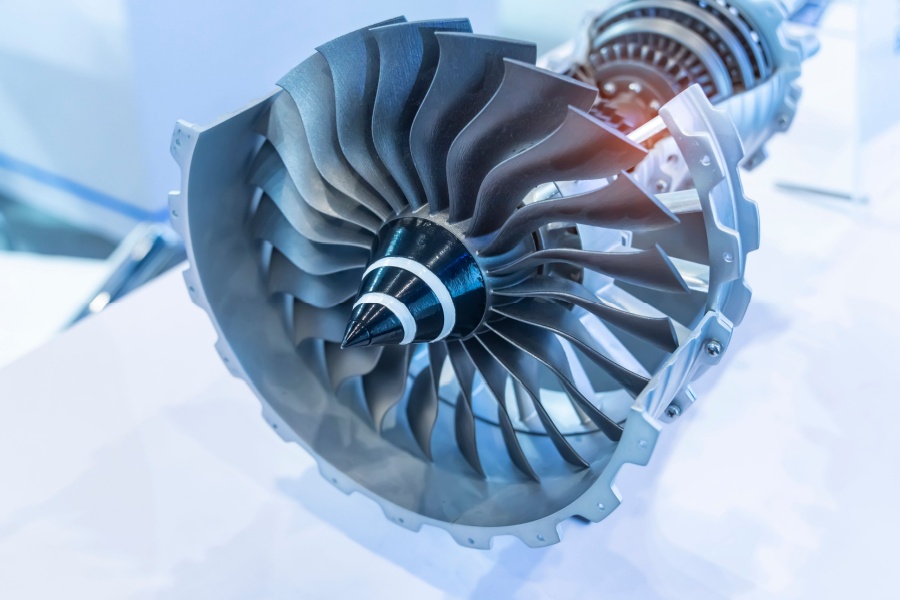Logistics
Warehousing & Fulfillment
Transportation
E-commerce
E-commerce Fulfillment Services
Lease & Maintenance
Semi Trucks
Supply Chain Technology
Logistics
E-commerce
Lease & Maintenance
Buy Used Trucks

TL;DR
Over the next few decades, the aerospace industry is expected to see unprecedented growth fueled by a resurgence in demand and innovation. After navigating supply chain disruptions and other challenges brought on by the pandemic, the runway is clear for a transformative era marked by new opportunities.
Whether manufacturing or developing advanced technologies for the commercial or defense sectors in aerospace, this billion-dollar industry relies heavily on fostering collaboration with dependable logistics partners.
According to forecasts from The Wall Street Journal, Boeing and Airbus are set to increase aircraft production significantly through 2035, driven by a growing appetite for air travel. As the industry evolves, it’s clear that robust and resilient supply chains are critical to maintaining this forward momentum.
In this article we’ll unveil new insights and tips that could help businesses in the aerospace industry soar to new heights to optimize operations.
Despite the positive outlook, the aerospace industry faces a variety of supply chain challenges that could hinder its progress. Here are some of the prominent issues:
1. Long Lead Times and Component Shortages
The aerospace sector is grappling with lengthy lead times for essential components. Many raw materials, such as titanium and semiconductors, could face waits of over 12 months before they can be delivered. Such delays can disrupt production schedules and lead to significant operational challenges.
2. Rising Costs of Raw Materials, Components, and Shipping
One of the most noticeable effects is the increase in costs for raw materials and components, which can lead to higher prices for manufacturers. And if the overall cost of shipping those goods increases, companies may want to implement alternative strategies with proven partners that support inbound logistics to manufacturing plants and outbound distribution to mitigate these added expenses and control costs.
3. Complex Multi-Tier Global Supply Chains
Managing complex global supply chains can be likened to juggling multiple items while racing against time. The intricacies involved in coordinating suppliers across various continents—or even across North America—often create visibility and traceability gaps. This lack of oversight can lead to costly delays and operational inefficiencies.
4. Compliance and Quality Standards
Certifications and compliance requirements, including ITAR and FAA standards, impose additional challenges on aerospace manufacturers. The high scrutiny of certifications can lead to delays in delivery times and increased costs as companies navigate these various regulations.
5. Labor Shortages in Skilled Trades
The demand for skilled labor in the aerospace sector continues to outpace supply. As production ramps up, an ongoing shortage of qualified workers, such as supply chain engineers, welders, and machinists, makes it difficult to meet the growing demand.
6. Cybersecurity Risks
As the aerospace industry increasingly relies on digital technologies, it becomes a more attractive target for cybercriminals. Threats such as ransomware attacks and intellectual property theft, particularly at lower-tier suppliers, pose significant risks that can disrupt supply chain operations.
7. Regulatory Implementations
Stricter regulations on carbon emissions, combined with consumer demand, are prompting aerospace companies to adjust their logistics strategies.
Though the challenges are significant, there are pathways for effectively addressing these issues and improving the resilience of aerospace supply chains:
1. Enhance Collaboration Across Supply Chains
Building strong relationships and improving communication with suppliers is key. Collaborative planning can lead to improved forecasting, which allows manufacturers to better manage lead times and reduce interruptions caused by shortages.
2. Invest in Advanced Technologies
Adopting digital tools such as AI, IoT, and predictive analytics can create more efficient operational processes. These technologies enhance visibility across the supply chain, allowing companies to respond more effectively to disruptions. According to Gartner, by 2026, 65% of aerospace manufacturers will leverage digital twins in production planning.
3. Focus on Employee Development and Training
As labor shortages persist, investing in upskilling current employees and attracting new talent becomes essential. Developing training programs can help bridge the skills gap, ensuring that the workforce is equipped to handle emerging technologies and operational challenges.
4. Prioritize Cybersecurity Measures
In an increasingly digital environment, implementing robust cybersecurity protocols is essential. Aerospace companies should prioritize data protection strategies to mitigate risks associated with cyber threats.
The Benefits of Port-to-Door Supply Chain Solutions in the Aerospace Industry
Port-to-door supply chain solutions play a pivotal role in enhancing the efficiency and effectiveness of your operation—connecting OEMs with Tier 1 and Tier 2 suppliers. By seamlessly integrating logistics from the point of origin to the final destination, these solutions streamline aerospace transportation processes.
Significantly reduce transit times:
Cost savings are another critical benefit:
Enable better risk management and compliance with regulatory standards:
As the aerospace industry continues to grow, leveraging robust port-to-door supply chain solutions will be essential for companies seeking to maintain operational competence and a competitive edge.
Aerospace logistics requires tailored, compliant, and technology-driven services to empower aerospace OEMs and Tier 1/2 suppliers to excel.
From efficient warehousing and reliable transportation to precise inventory control and kitting, Ryder covers all aspects of the supply chain. With our advanced technology, like RyderShare(TM) and industry expertise, we ensure seamless operations that enhance efficiency and mitigate risks.
With a trusted partner by your side, unlocking a new level of excellence in your aerospace supply chain performance makes for a smooth takeoff, flight, and landing.
As the aerospace industry continues to chart its course, the importance of addressing supply chain challenges cannot be overstated. Adapting to these evolving conditions will be crucial for maintaining momentum and achieving growth. By enhancing collaboration, investing in technology, and prioritizing workforce development, aerospace manufacturers can navigate these challenges and position themselves for long-term success.
The sky is the limit for the aerospace industry, and with the right strategies, it’s clear skies in the forecast.
Speak with a Ryder expert for a customized aerospace supply chain assessment.